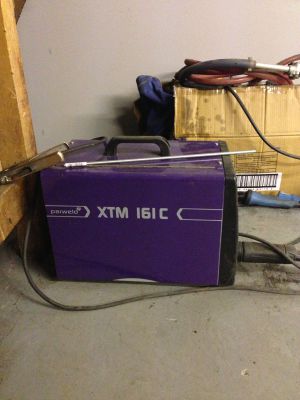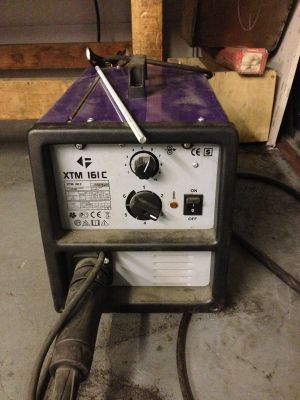Equipment/Parweld XTM161: Difference between revisions
Deanforbes (talk | contribs) mNo edit summary |
Deanforbes (talk | contribs) m (Deanforbes moved page Equipment/MIG Welder to Equipment/Parweld XTM161: More descriptive title) |
Revision as of 20:25, 4 August 2014
| This article may require cleanup. The specific problem is: Cleanup per Wiki todo. (April 2013) |
A new MIG welder has been purchased. It's very nice.
Resources
Wiki links
External links
- General welding site, useful for ideas
- An introduction to MIG welding covers spot welding
- A follow on advanced lesson to MIG welding covers bead welding
- Another good site for DIY welding beginners in the UK including a forum where people will give advice on pictures of welds
Training
Welding Stainless Steel
(dump from an email from Russ)
Details on stainless welding here (including which grade wire to use): http://www.mig-welding.co.uk/stainless.htm
Note that after welding, the surface of the metal is not as nonreactive as pristine stainless, and it's also pitted. Depending on the grade of finish required (food-grade tanks tend to require smoother finishes) metal fabricators will either grind or (better) "pickle" the surface to reduce this. Pickling is carried out with a mix of Nitric and Hydrofluoric acids and is generally not something I want to touch with a bargepole.
Other thing to note is that fumes from stainless welding contain chromium and nickel and hence are more toxic and carcinogenic than normal welding fumes. The ventilation isn't brilliant, so I'd suggest breathing apparatus of some description.

